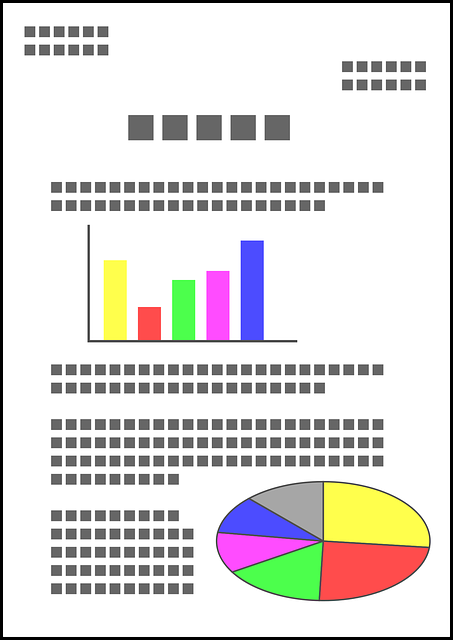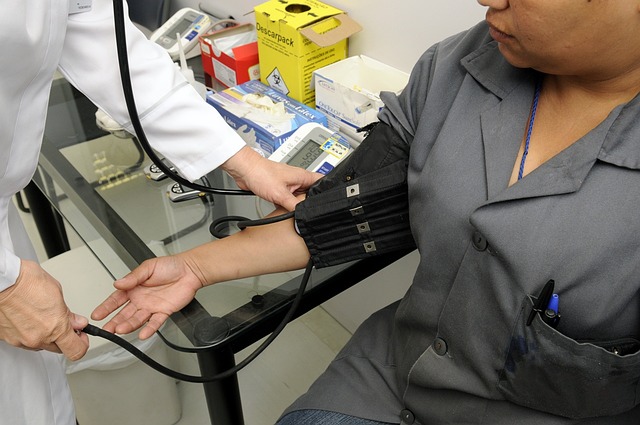TL;DR:
Risk Assessment Reports (RARs) are crucial documents for businesses operating globally, requiring precise UK translation services to ensure legal compliance and effective risk management. These services specialize in translating RARs into different languages, accounting for technical jargon, industry-specific terms, and cultural nuances. They maintain report integrity, structure, and formatting while adapting content for local business practices and legal frameworks.
Professional translators, often native speakers with industry knowledge, leverage quality assurance processes to deliver clear, accurate translations that mitigate risks in international operations. Tailored translations improve compliance, decision-making, and risk assessment accuracy across diverse markets, as evidenced by successful case studies from various sectors like finance and pharmaceuticals.
Advanced Risk Assessment Reports UK translation services utilize AI and machine learning for linguistic adaptation while preserving data integrity, fostering trust, and revolutionizing global compliance in the digital era.
In today’s globalized business landscape, understanding and complying with local regulations is paramount. Tailored translations of risk assessment reports play a crucial role in ensuring adherence to legal requirements, especially within the UK. This article explores the significance of accurate translations for global compliance, delving into the challenges unique to risk assessment reports. We’ll discuss how specialized translation services can meet industry standards and highlight best practices for effective communication of risk findings across borders.
- Understanding Business Risk Assessments and Their Legal Requirements in the UK
- The Significance of Accurate Translation for Global Compliance
- Challenges in Translating Risk Assessment Reports
- Tailoring Translation Services to Meet Industry Standards
- Choosing the Right Language Experts for Your Risk Assessment Report
- Ensuring Cultural Sensitivity in International Translations
- Case Studies: Successful Tailored Translations in Business Risk Assessments
- Best Practices for Effective Communication of Risk Assessment Findings
- The Future of Compliance and Translation in a Digital Age
Understanding Business Risk Assessments and Their Legal Requirements in the UK

Business Risk Assessments are crucial documents in the UK, outlining potential hazards and implementing control measures to mitigate them. These assessments are legally required across various sectors, ensuring businesses operate within stringent safety and compliance standards. They form the backbone of risk management strategies, identifying vulnerabilities and guiding proactive measures to protect employees, customers, and assets.
When it comes to international business operations, tailored translations of these Risk Assessment Reports become essential. UK translation services specializing in this field ensure that legal requirements are met while accurately conveying complex risk analysis information into different languages. This is particularly vital for multinational corporations navigating the intricacies of global compliance, where language barriers can significantly impact risk management and legal accountability.
The Significance of Accurate Translation for Global Compliance

In today’s globalised business landscape, companies operate across borders, making accurate and tailored translations of risk assessment reports crucial for compliance. With regulations varying from region to region, a one-size-fits-all approach can lead to significant errors and legal pitfalls. Professional UK translation services play a vital role here by ensuring that these reports are not just linguistically precise but also culturally sensitive, thereby facilitating smooth operations worldwide.
Accurate translations go beyond mere word-for-word substitution. They require an understanding of the nuances and context specific to each industry and jurisdiction. This is particularly important for risk assessment reports as they often include technical terminology and complex concepts that demand precision in translation to maintain their integrity and effectiveness, thereby upholding compliance standards.
Challenges in Translating Risk Assessment Reports

When it comes to translating Risk Assessment Reports for business compliance, several challenges arise due to the intricate nature of such documents. One of the primary hurdles is accurately conveying technical jargon and industry-specific terminology across different languages. As standards and regulations vary globally, a direct translation may not capture the intended meaning, leading to potential misunderstandings. For instance, UK-based businesses operating internationally require Risk Assessment Reports translated into various languages, demanding precision to ensure compliance with local legal frameworks.
Another challenge lies in maintaining the original report’s structure and formatting, especially when dealing with complex risk assessment matrices or charts. These visual elements must be adapted for readability and cultural relevance without compromising the data’s integrity. Moreover, cultural nuances play a significant role; what seems straightforward in one language might require elaboration to convey the same sentiment in another, ensuring that the translated report resonates with global audiences while adhering to compliance standards.
Tailoring Translation Services to Meet Industry Standards

In the realm of business, particularly when dealing with international operations, risk assessment reports require precise and tailored translation services to meet industry standards. This is crucial as regulatory compliance varies across jurisdictions, demanding that documents accurately convey critical information in each target language. Professional UK translation services specializing in risk assessments play a vital role here, ensuring accuracy, consistency, and cultural adaptability.
These services don’t merely translate words but also grasp the nuances of legal and financial terminology specific to risk assessment reports. By employing native speakers with industry expertise, they guarantee that technical concepts are conveyed clearly and effectively. This meticulous approach not only enhances communication efficiency but also minimizes potential risks arising from inaccurate translations, ensuring compliance across global markets.
Choosing the Right Language Experts for Your Risk Assessment Report

When it comes to tailored translations of business risk assessment reports, selecting the right language experts is paramount for ensuring accuracy and compliance. Look for translators with a proven track record in regulatory documentation, preferably those familiar with the UK’s legal and financial landscape. Reputable translation services should employ native speakers who possess not just strong linguistic skills but also a deep understanding of the nuances and terminology specific to risk assessment reports.
In-depth knowledge of industry-specific jargon and compliance requirements is essential. These experts should be adept at conveying complex information accurately while maintaining the integrity of the original report. Reputable translation services will also employ quality assurance processes, including proofreading and editing, to ensure that every detail is captured perfectly in the target language. This meticulous approach guarantees that your risk assessment reports are not just translated but locally adapted for maximum effectiveness.
Ensuring Cultural Sensitivity in International Translations

When translating risk assessment reports for international business compliance, cultural sensitivity is paramount. Beyond simply converting text from one language to another, professional translation services in the UK understand that effective communication requires an intimate grasp of cultural nuances. This is especially critical in the corporate world, where missteps in translation can lead to regulatory non-compliance or even damage to a company’s reputation.
A skilled translator not only translates words but also adapts content to align with local business practices and cultural references. They ensure that technical terminology is accurately conveyed while respecting cultural context, avoiding idiomatic expressions or phrases that might be lost in translation or misinterpreted across different languages and cultures. This meticulous approach guarantees that risk assessment reports are not just linguistically accurate but also culturally sensitive, facilitating seamless communication and compliance in a global business environment.
Case Studies: Successful Tailored Translations in Business Risk Assessments

Successful case studies highlight the profound impact tailored translations can have on business risk assessment reports, especially in a globalised market. Many organisations operating across international borders have benefited from UK translation services that cater specifically to their industry’s unique terminology and regulatory requirements.
These cases demonstrate how precise language adaptation enhances the accuracy of risk assessments by ensuring compliance with local laws and standards. For instance, financial institutions have seen improved risk management through translated reports that accurately convey complex financial concepts across multiple languages. Similarly, pharmaceutical companies have leveraged tailored translations to navigate stringent regulations in different markets, thereby mitigating potential risks associated with product launches and supply chain management.
Best Practices for Effective Communication of Risk Assessment Findings

When communicating risk assessment findings through tailored translations, it’s crucial to maintain clarity and accuracy. UK translation services should employ best practices that ensure the translated reports are easily comprehensible for all stakeholders. This includes using plain language, avoiding jargon, and providing context to technical terms. Visual aids such as charts and diagrams can significantly enhance understanding, especially when dealing with complex data or processes.
Effective communication also involves tailoring the report to the audience’s specific needs and level of expertise. For instance, executives may require a high-level summary focusing on key risks and mitigation strategies, while operational teams might need more detailed technical explanations. Consistent formatting and a logical flow of information across all sections facilitate comprehension and enable quick reference. Regular feedback from readers is also valuable for refining communication strategies and ensuring the translated risk assessment reports meet their intended objectives.
The Future of Compliance and Translation in a Digital Age

In the digital age, businesses operate in a global marketplace, making effective communication and compliance across borders increasingly vital. As regulations become more complex and international trade continues to flourish, tailored translations of risk assessment reports are becoming indispensable tools for companies seeking to navigate these challenges successfully. The future of compliance lies in seamless integration with translation services, ensuring that every document, from financial statements to legal agreements, is accurately and culturally adapted.
Advanced UK translation services now employ machine learning and artificial intelligence technologies to streamline the process while preserving the integrity of the original content. This ensures that risk assessment reports are not only linguistically accurate but also maintain their critical value in terms of data analysis and decision-making. Such innovations herald a new era where compliance is not just about meeting regulatory standards but also about fostering trust, transparency, and effective collaboration across diverse business landscapes.
In today’s globalized business landscape, ensuring compliance across jurisdictions is paramount. Tailored translations of risk assessment reports play a crucial role in facilitating international operations while meeting legal requirements in the UK and abroad. By leveraging specialized language experts and adhering to industry standards, organizations can navigate complex regulatory environments effectively. This article has explored the significance of accurate translations, the challenges involved, and best practices for successful risk assessment communication. As we move forward into a digital age, embracing innovative translation technologies while preserving cultural sensitivity will be key to staying compliant in a global market. Effective risk assessment report translations empower businesses to make informed decisions, mitigate risks, and thrive internationally.
